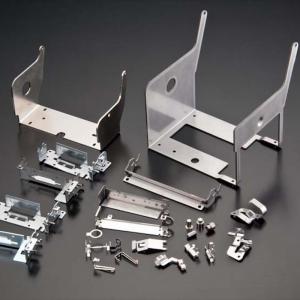Custom Aluminum, Stainless, Steel , Sheet metal bending Metal stamping Sheet Metal Fabrication
Sheet metal bends are formed using metal bending. Metal bending is a process by which metal can be deformed when applying force to the subject, which causes it to bend at an angle and form the anticipated shape, which often results in it being in a ‘V’ or a ‘U’ shape.
A press brake is a tool used in order to bend sheet metal and uses a punch and die to do this. Although press braking may seem straight forward, it can be quite difficult to remain accurate throughout the process. There are several types of press brakes which deliver different levels of force applied, such as mechanical, pneumatic, hydraulic and CNC to name a few examples.
Materials That Work Well for Sheet Metal Bends:
- Galvanised steel: A resilient and corrosion-resistant metal. If you bend galvanised steel, it can be moulded into the appropriate shape for your project. The bending process is usually quite simple, and in most cases, galvanised steel will be more malleable than shaped stainless steel forms.
- 5052 Aluminium: With high workability as well as low weight, aluminium is easy to bend as it is extremely malleable. This makes cracking rare.
- Stainless Steel: Mostly used for manufacturing within the food and medical industries, it has corrosion resistance, with some grades excelling at resistance. Different grades of stainless steel will perform differently but it can be prone to work hardening.
- Spring steel: Can be malleable when annealed but, once the work has hardened, it tends to require heat in order to bend again.
- Copper: This tends to be very malleable. Its antimicrobial benefits also give copper an added edge.
- Mild steel: No heat tends to be required for mild steel, making it very malleab
